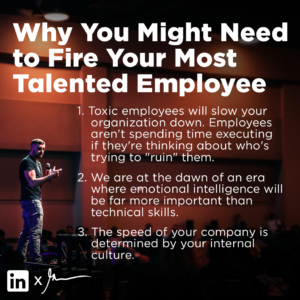As 5G digital transmission speeds–which are 10 to 100 times faster than 4G depending on the application–take root and establish a new normal for digital velocity, right behind them are robots. Retail mega-monster Walmart fired a loud cannon recently, announcing that one-fourth of its stores will integrate robots in place of unskilled labor. The robots will handle janitorial services out on the floors, provide inventory control, and be used behind the scenes for truck unloading and product stocking. Walmart is not alone in its strategic embracement of robotics. Walmart is simply the sonic boom signifying the race is officially on for consumers to see.
Walmart’s somewhat implausible justification is that such a move allows its people to “better serve customers.” Citing challenges filling jobs and retaining workers, America’s largest retailer paints a thin veneer over the true impact of the move: human job obsolescence.
I worked on four continents during the first quarter of this year and see a distinct elasticity in corporate cultures and attitudes toward people. Old school management principles seem to be on the wane and worker utilization is in a state of flux. Depending on the culture of the company, focus is on using technology to derive gains or recognizing that competitive advantage comes from “getting on the stick” and developing with accelerated urgency the cerebral potential of current employees.
As I spoke about at MIT and wrote a couple years ago in The Impact of Technology on Behavior & Happiness, when the needs of the company are driven by task execution that relies on a box to do its thinking, competitive advantage dwindles more than grows because technology is easily replicated. Because of this evolving market differentiation will come from though-driven, relentless, action-oriented strategic repositioning. Companies hoping to establish and/or sustain this type of winning culture must be populated with self-aware thinkers in order to do so.
Focus, therefore, needs to shift organizationally from task-oriented execution to behavioral thinking, and in order to maximize cerebral resources companies must have a methodology in place that fosters this self-awareness, as well as behavioral acuity and strategic thought. These things can be learned but do not sprinkle down as pixie dust from ceiling tiles.
This smarter human approach provides an extraordinary opportunity for companies populated with younger workers, for whom technological proficiency is organic in nature. Having these employees focus on the “what to do” — which they already know or learn quickly — shortchanges their potential for accelerated performance and far greater things.
Colleges, however, cannot supply what is required. Two of the biggest problems on college campuses are the alarming rise of inadequate coping and resilience skills by students who then struggle to deal with the ramifications that come with weak life skills. Smart employees will expect this and embrace this as a developmental opportunity when onboarding new talent. By arming younger workers with tools to expand behavioral awareness, the employees will more quickly reach the “effectiveness stage” of strategic contribution. Workers will respond positively. By infusing emotionally equity in its workforce, companies reduce turnover, increase engagement, foster loyalty, gain better new hire referrals from existing staff, and perform better with less drama.
In summary, I defer to Bill Gates. Gates recently said if he could go back in time, he would tweak his management style.
“I would try and make myself more self-aware without getting rid of the focus and desire to learn,” the 63-year-old said during an “Ask Me Anything” session on Reddit in February, per CNBC. “I was overly intense and socially inept.”
If this approach may help your organization solve problems or add value to your current people development approach, feel free to contact me directly to discuss: ted@oceanpalmer.com.
